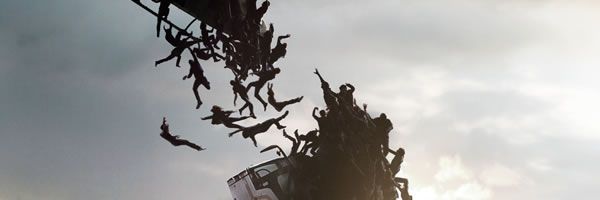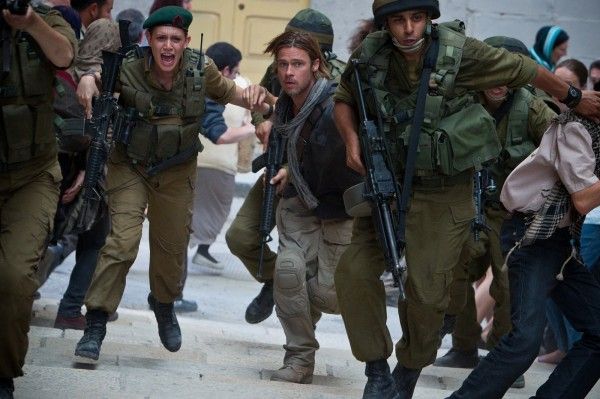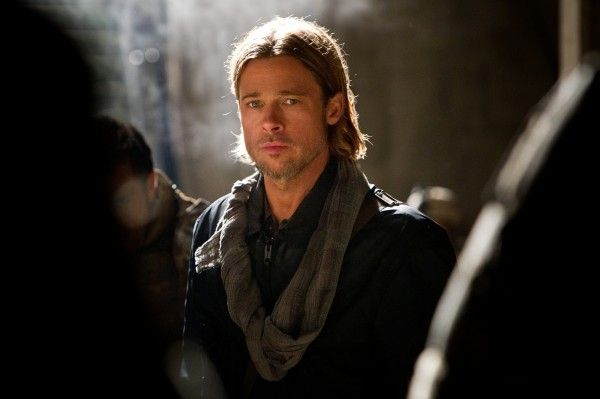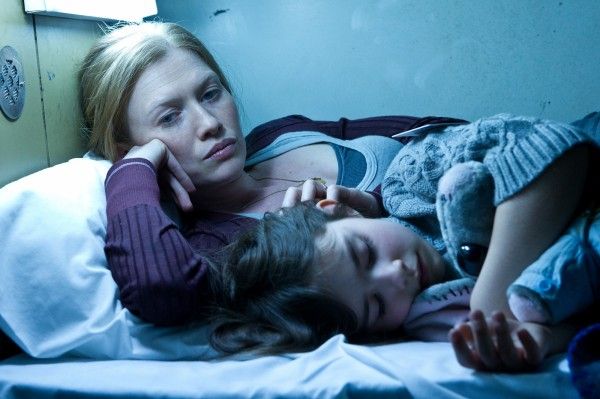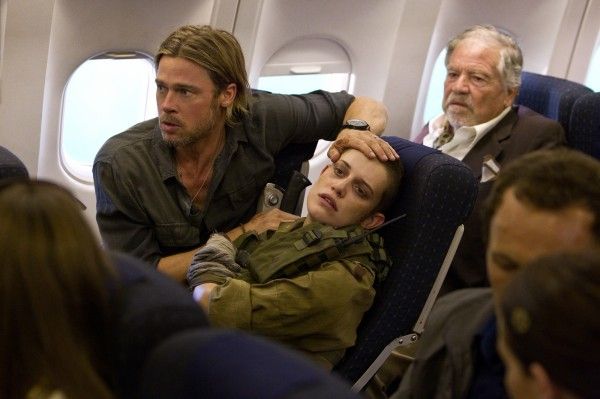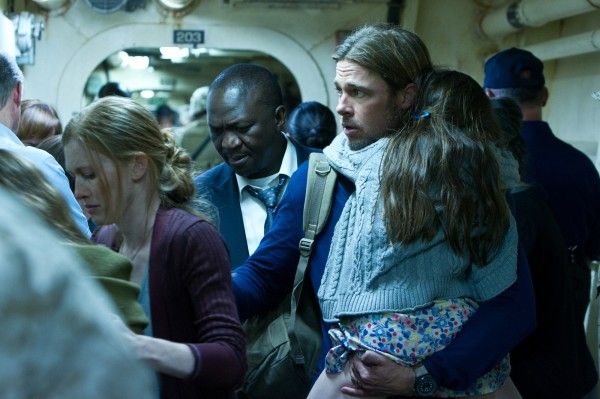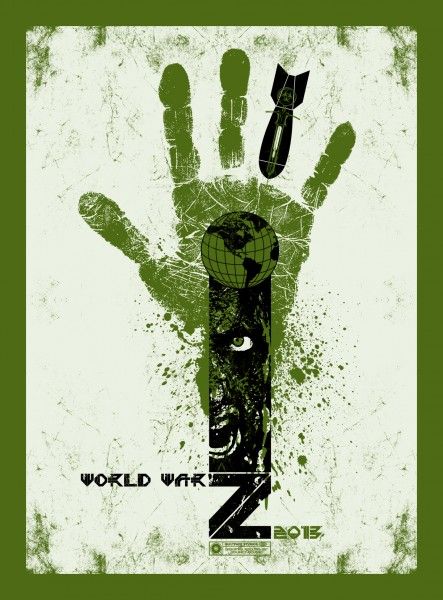In pop culture, genre dominance is cyclical. Westerns, superheroes, medical dramas, the supernatural, and more have all had their turn as the top of the mountain. In turn each falls away only to rise up again in another time, another generation. Usually with a new twist or perspective, if only because culture is a living creature and acceptable norms change. Back in 2010, zombies were once again the rotting king of the mountain. The Walking Dead premiered on AMC, jumpstarting a scramble for studios to find their own undead property to cash in on. Couple with the success of Zombieland the previous year and it seemed like a no-brainer that zombies=money.
Into this perfect storm stepped Paramount Pictures and Brad Pitt. The two had owned the rights to Max Brooks' novel World War Z since 2007 — a year after the book was published — but in 2011 they finally yanked it from development hell and put the adaptation into production to ride the zombie zeitgeist. For those not familiar, the short version of this decision is that it didn't go great. Production was beset by squabbles and setback, the budget ballooning from $125 million to nearly $200 million. The third act was scrapped in post-production and rewritten from scratch. It was a nightmare scenario. However, when the film finally shuffled to the cineplex, it ended up making $540 million worldwide despite all the behind-the-scenes problems and the front-of-house problem that was fans of the novel basically going "What the hell is this because it sure isn't World War Z."
At the time, World War Z was touted as a success because in the halcyon days of 2013 we did not bake in marketing cost factors. $540 million on a budget of $200 million sounds good, until you realize studios usually spend at least $100-$150 million on a summer tentpole film like World War Z. Suddenly that profit margin seems a little thin for such an expensive, headache-inducing property. Combined with outside factors and it's not a shock that World War Z 2 was finally, officially scrapped in 2019 due to budget concerns as well as the fact that zombie content is banned in China.
To which I say: Good, and I spit on its grave.
The World War Z adaptation was a great, mindless (zing!) film about the new du jour in zombie cinema: the fast zombie. It was a big budget spectacle that accurately showcased the panic such an outbreak would cause. It was absolutely not World War Z. Instead, it was the cinematic equivalent of ordering lobster-and-crab ravioli and getting microwave pizza rolls instead. The shape is the same, but that's about it.
Max Brooks' novel is not a rollicking action-adventure. There is no race against time to find a cure (there isn't one). There are no insect-like hordes sprinting through the streets. There is certainly no vaguely anti-Semitic undertones as Jerusalem falls (within the books, Jerusalem is one of the few harbors of humanity that never collapses). Instead, World War Z harkens back to one of the most ancient science-fiction tropes: the story within the story.
It begins with an unknown narrator setting the tone. The book is a collection of stories set down in the aftermath of the plague that nearly wiped humanity out. Hired by the United Nations Postwar Commission, the narrator was tasked to travel the world in the decade following the end of "The Crisis" to collect data that would go into a after-action report. This report would hopefully help future generations, should the zombie menace rise again. The only problem was the narrator also collected the stories of the survivors. Those stories were not data, so they were excised. So, the narrator wrote this book to get the human element into the annals of history. It's a documentary, told by those who lived it, with all the haunting hindsight audiences are used to when watching horrors unfold from the safety of the future.
I don't want to get too into the weeds here, but will note some highlights just to help set the stage for what Max Brooks was trying to do with World War Z. There are chapters about years of chatter coming out of rural China about an outbreak that reanimated the dead and how hubris kept most governments from taking the threat seriously. There are chapters about Big Pharma creating false vaccines to line their pockets and keep the populace from panicking. Chapters about those trapped on the International Space Station, children who became feral in the wilds of apocalyptic suburbia, armies carpet-bombing refugees only to have them rise up, now more dangerous than ever. Chapters about the folly of living on an island or a cruise ship. Chapters about how the rich were wrong about their money protecting them from hordes of zombies or angry citizens. Chapters about battles gone wrong and the terrible choice that ultimately saved the species by sacrificing most of it. World War Z did what the best of the genre has always done: used zombies as a metaphor to how humans react in a crisis.
In an era of Peak TV™ where mockumentaries like Houston, We Have a Problem and American Vandal are stretching the genre, while actual documentaries like those about the Fyre Festival are pop culture phenomenons, the iron is hot to strike with World War Z as it was meant to be adapted: accurately.
Now don't get me wrong, a documentary-style World War Z reboot would not be cheap, though networks like HBO and Netflix have shown there is a market for high-quality, big-budget genre television. But picture it: Instead of wide-angle shots of CGI zombies swarming over the landscape at a breakneck pace, you get interviews with hollow-eyed survivors recounting their stories intercut with footage from the decade-long war. People would be talking about the lengths they went to in order to survive, the people the lost, the guilt of being alive. Interviews with government officials haunted by the clarity of hindsight, teenagers recounting years spent feral and the long road back to a semblance of normality. Housewives and office workers, soldiers and doctors, all recounting history for the camera so future generations don't fall into complacency. Scenes from all over the world and how different cultures responded to the crisis. In the right hands, it could be a searing portrait of the best and worst of us all and the scars we inflict on each other and ourselves.
There are even several ways a television studio could tackle telling this version. Limited series are exceedingly popular in the era of Peak TV™ as it gives weary audiences the promise of a satisfying end for their investment. As “The Crisis” was a set period of time — about a decade — this format could work well. However, using American Vandal as a benchmark, should World War Z take off in the popular imagination, the source material is more than rich enough to go meta. Acknowledging the impact by breaking the fourth wall would give the series new legs without undoing the self-contained packaging of the limited series. After all, when the entire world is subject to a pandemic, there are always more stories to tell that flesh out the timeline.
Another avenue to continue the World War Z universe would be to tap Max Brooks other novel set in that world: The Zombie Survival Guide: Recorded Attacks. In this companion piece to World War Z, Brooks reimagines moments and cultures throughout history as connected to the zombie menace. Did ancient Egyptians remove the brain from their dead because of religion or necessity? Did a riot caused in Germania have its roots in the Roman military putting down infected clergy? Were zombies behind the mysterious disappearance of the Roanoke colonists? Thousands of years of history seen through a prism of a malignant force that rises again and again, only to be dismissed as too fantastical to be real, has some interesting themes worth exploring.
Much like superheroes, zombies aren't really a genre of entertainment, but rather a framework upon which any story can be fitted. Perhaps it's time to fit something that asks more of the audience than what we would do in a zombie apocalypse. Instead, what would you do if you survived?

